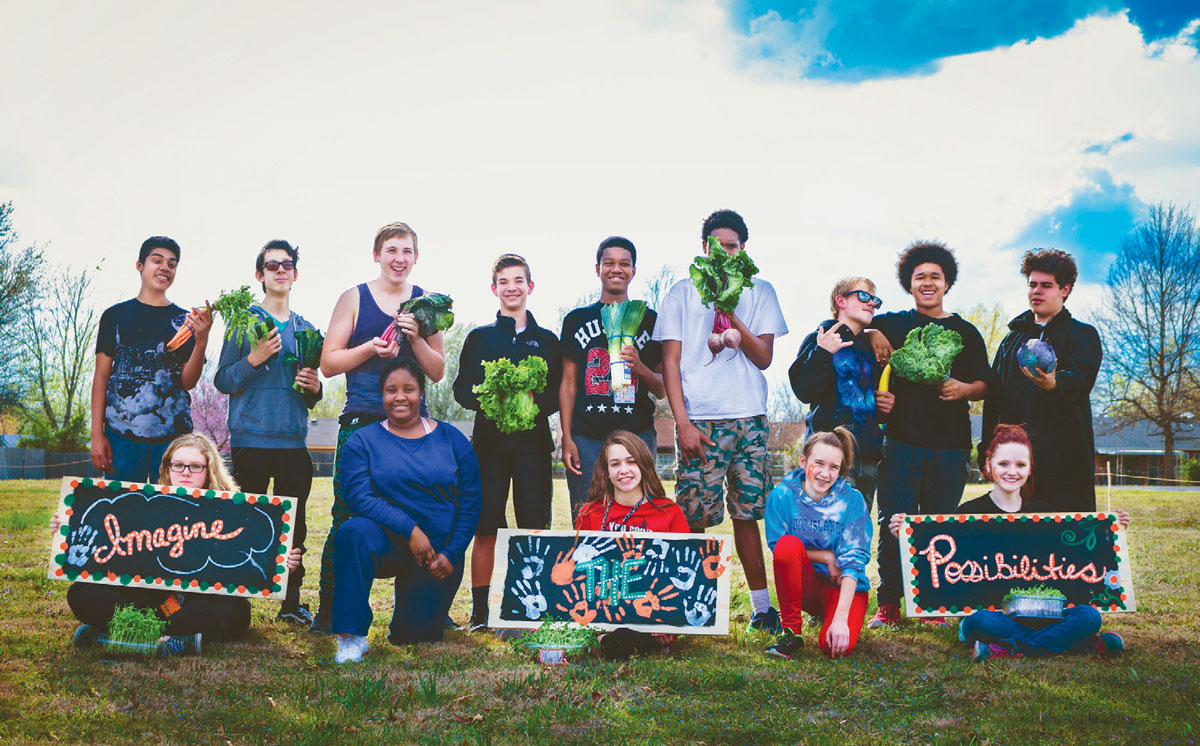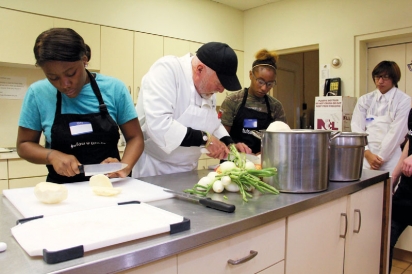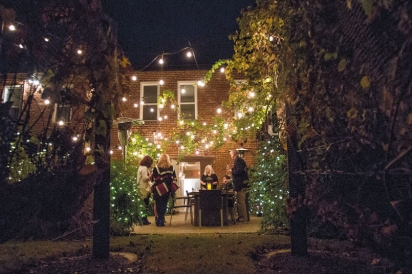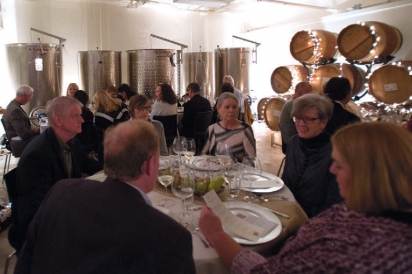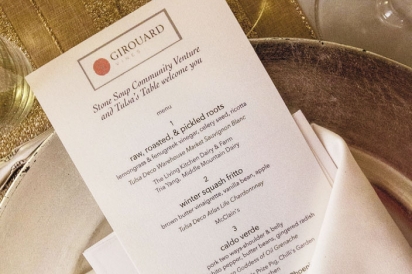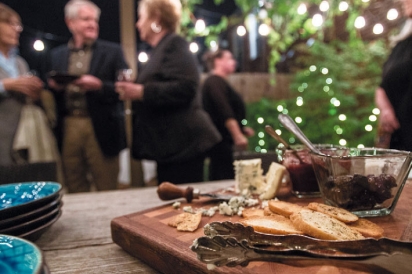Tulsa's Table
Christy Moore Invites Tulsans to Help Create a Community Meal
In the centuries old folk tale “Stone Soup,” a weary traveler comes upon a village and sets about making soup from only a stone. Local villagers, at first reluctant to give handouts to the stranger, are slowly overcome by curiosity. Eventually, each villager agrees to bring something of their own to add to the pot. By the end, everyone gathers around the table to share the rich and plentiful meal they have made together.
For Christy Moore, the simple allegory so mirrors her life’s work that she operates her program, Tulsa’s Table, under a nonprofit umbrella called StoneSoup Community Venture. Her mission—Nourishing community for a purpose—is bringing a new model for feeding the hungry to Tulsa. Unlike so many soup kitchens or food pantries, in which the “haves” offer much-needed goods and service to the “have-nots,” the community café concept invites people from all walks of life to come together for a meal, regardless of their ability to pay. Tulsa’s Table is among 50 such community cafés across the country that follows One World Everybody Eats Foundation’s unique model.
“The pay-what-you-can model is so important to me because it’s anonymous,” Moore says. “No one knows who’s paying and who’s not. You can come in and eat a meal and put your envelope in the basket on the way out and no one knows. No one has to know.”
Anonymity is key for Moore, who has vivid memories of experiencing hunger as a young person. Growing up in agriculture-rich California, she was surrounded by fresh food but her family, which she describes as being very poor, was touched by hunger and homelessness as she entered those formative middle-school years. What stands out most as she reflects on those times is not the physical pain of hunger, nor the anxiety associated with food insecurity. She most recalls the feeling of shame that arose from not having food in a culture of plenty, where it is assumed everyone has enough to eat.
“You develop this sense of shame because others, while well intentioned in offering charity to you, present you with a reflection of yourself that isn’t equal to you. So you see yourself as less-than.”
Living this reality developed in her more than a sense of shame, however. It forged a sensitivity that drove her to work in social services, where she regularly interfaced with people in need over the course of her career. But it wasn’t until studying at Phillips Theological Seminary that she began to discern her true calling. Putting together her understanding of fresh food and what it means to be hungry, Moore decided to move into food-justice work.
Calling it a hand up not a handout, Tulsa’s Table seeks to strike at the roots of hunger: poverty, unemployment and incarceration. Inspired by Café Momentum in Dallas, which works to reduce youth recidivism, Tulsa’s Table will employ at-risk youth in the hopes of keeping them out of the justice system in the first place. In addition to having access to fresh, healthy food, the youth will gain valuable job and life skills: gardening, engineering growing systems, food preparation, cooking, serving and front-of-house skills. The possibilities are nearly endless with a café that will operate from seed to table.
“Part of our hope is that out of our garden there will be some micro-business development where these youths could develop food products or take the food they grow to a farmers’ market,” Moore says.
All of this is still in the works for Moore, who describes herself as a woman with a vision and a big heart. Over the past year, Moore has been developing and testing the community café model in Tulsa with a series of pop-up dinners at local community centers. At these dinners, the support from the community was positive in terms of enthusiasm, volunteerism and diners paying it forward. Non-paying and low-paying diners have been harder to engage. Though the locations were strategically chosen to be close to low-income populations, what the pop-ups revealed is that, much like the villagers from the fable, Tulsans are most comfortable operating in their own socioeconomic spheres.
“What we tried to do the first round was work through the host site and ask them, assuming that they had relationships with their neighbors, to invite their neighbors to come,” Moore reflects. “What we found out was that in many ways we’re siloed in our locations.”
Far from discouraged by the unbalanced participation, Moore has tried to harness that support to move the organization towards a fixed location. Tulsa’s Table recently participated in a pop-up dinner hosted by Girouard Vines and Hope Egan’s Red Thistle Catering Company with the sole purpose of raising funds and awareness. The five-course dinner featured “live music, local food from local farms, local wine and a good cause.” Girouard Vines’ intimate event space was packed full of hungry guests eager to pay it forward.
For now, Tulsa’s Table has partnered with a nonprofit in east Tulsa where they have access to a commercial kitchen and several acres to begin building a youth garden. Moore is hopeful that Tulsans will continue to engage and make it possible for Tulsa’s Table to grow into a fixed location. In a city where approximately 25% of adults and 30% of children experience hunger, Moore emphasizes that her mission is about more than feeding people:
“Children that don’t eat can’t do well in school. Adults can’t focus on holding a job. People just aren’t at their best [when they don’t eat] so that’s my goal: Help Tulsa be our best. And we can. We can do this. We can come together and make it better.”
***
The traveler from the fable piques the interest of villagers with their farfetched promise to turn a stone into soup. Reflecting on her first year in operation, Moore is in a position similar to the traveler first dropping a stone into the pot.
“You know as a young nonprofit you have work to do to show people that you’re capable of carrying out the mission before they really will invest heavily in you.”
Only time will tell what kind of soup Tulsans will come together to make. One thing is for sure: When it’s finished, everyone will have a seat at Tulsa’s Table.
For more information about Tulsa’s Table visit TulsasTable.org.


